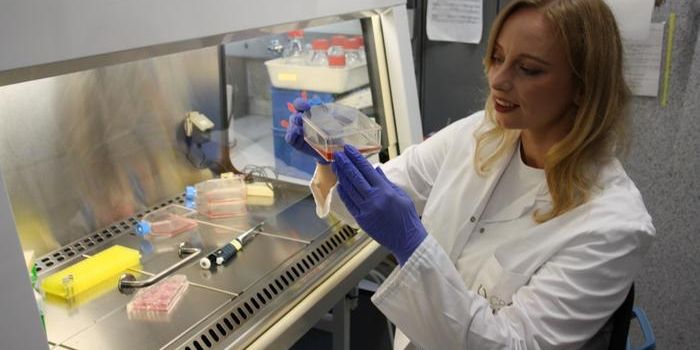An Improved Reference Genome for Better Research
In scientific research, it's crucial to be able to make comparisons, making reliable standards and controls essential for drawing valid conclusions. Researchers have now generated a new reference genome for the rhesus macaque, which is the most commonly used nonhuman primate research model. This new genome assembly contains over 85 million variations, currently making it the largest database of variants in the genome for any nonhuman primate species. The findings have been reported in Science.
While most members of a species carry more or less the same genome, there can be many small changes in that genome that can affect biology in different ways. This new sequence will give researchers a broader view of the DNA sequence carried by rhesus macaques, and how it can vary.
"This is a major step forward in the amount of information we have about genetic variation in the rhesus macaque," said Dr. Jeffrey Rogers, associate professor at the Human Genome Sequencing Center and Department of Molecular and Human Genetics at Baylor and a co-corresponding study author. "We have actually identified thousands of new mutations in the population of research animals. Now colleagues all over the country who are investigating various aspects of health and disease using rhesus macaques can begin to make use of that information."
A combination of cutting-edge techniques was used in this work, and it's a substantial improvement over the last sequence, which was released in 2007, noted the study authors.
"When we coupled this higher quality genome reference with a broader sequencing of expressed genes, our team discovered gene structures unique to macaque as well as specific repeat sequences undergoing deletions that suggest evolutionary competition to suppress these elements from expanding continues today," said co-corresponding study author Dr. Wesley C. Warren of the University of Missouri.
In this study, genomes from 853 rhesus macaques from various research institutions around the US were collected and sequenced. The animals were found to have a higher degree of genetic variation than humans. Millions of variants were found, and several deleterious mutations were identified in genes that have been linked to human diseases including inherited blindness and autism.
"We can find naturally occurring models of genetic disorders by surveying the rhesus macaque population," Rogers noted. "We will find animals that naturally carry interesting and useful genetic mutations that can help us understand genetic variation and susceptibility to disease in humans. Rhesus macaques are also widely studied by primatologists and evolutionary biologists, so this new reference genome will also provide new insight into the evolution of the nonhuman primate and human genomes."
Sources: AAAS/Eurekalert! via Baylor College of Medicine, Science









